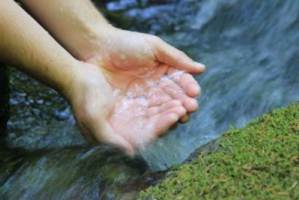By Andrea Bryant
R-E-S-T. These four letters contain so much meaning. Depending on how we define rest along with our own experiences, the idea of rest may seem easy on some levels while challenging on others.

Rest can include physical rest and spiritual rest, for example. The need for rest may also seem counter-cultural in a society that is constantly demanding our attention.
Perhaps, we have FOMO or the fear of missing out. The demands of life may push us to burn the candle at both ends. Dorothy Bass states, “refraining from work on a regular basis is a way of setting limits on behavior that is perilous for both human welfare and the welfare of the earth itself.” Rest acknowledges that we have are finite human beings with limits on our time and energy. As human beings created in God’s image, resting honors that God made us.
Through this year, I have been learning about the importance of spiritual practices including rest and self-care. These spiritual practices sound simple on the surface, but they are challenging to put into practice. Prior to the pandemic, I had rhythms of rest and self-care that were meaningful and life-giving. These rhythms were disrupted with the changes inherent in the pandemic.

The balance between work and life became more challenging. Productivity became a focal point. Zoom fatigue became a reality. Exhaustion and burn-out became normal.
The need for rest and self-care became essential to continue functioning. Through our class, I have reflected on the rhythms of rest and self-care that were life-giving for me before the pandemic. I began to realize how much I missed these and how much these rhythms were essential to sustaining my overall well-being and sense of wholeness.
Somewhere amid the pandemic, I had become more of a “human doing.” This was akin to going through the motions or simply trying to survive. There was a feeling of disconnection. I have heard the phrase that “we are human beings not human doings.” I realized this was not who I wanted to be. I was not living into who God created me to be. I began to acknowledge the losses. I grieved. I began to slow down and rest. As I slowed down, I examined each area of my life to identify areas of deficiency and potential areas of growth. I wanted to heal and pursue wholeness in life. As I learned about spiritual disciplines, I learned that self-care includes rest. Both self-care and rest can be spiritual acts of worship.

Rest includes rest for our soul. The soul or heart is the inner core of our being.
In some some cultures, the heart is known as the seat of decision making or the place where reason and emotions meet. It is the source of vitality of life. Rest allows us to connect more deeply with God and to partake in holy leisure.
Self-care includes caring for the body, soul, and spirit. It is honoring our limits as finite human beings. It is listening to our bodies as they speak the truth about ourselves. It is recognizing and protecting the boundaries we set. Self-care is being a good steward of our bodies and nurturing our souls in meaningful and life-giving ways. It can include sleeping, balanced eating, staying hydrated, engaging in enjoyable ways to move our bodies, as well as praying, reading scripture, meditating, exploring new activities, and practicing self-compassion, for example. Self-care is making good choices in how we spend our time and how we connect to creation, God, ourselves, and others. The practice of self-care is taking care of ourselves each area of life in a movement towards wholeness and a longing for shalom.
Through both rest and self-care, we live into our humanity. We move from surviving to truly engaging in life. We can begin to see the unique gifts, talents, and abilities we have been given and cultivate them.

Parker Palmer notes “self-care is never a selfish act—it is simply good stewardship of the only gift I have, the gift I was put on earth to offer others.”
The practice of self-care and rest are acts of receiving. They allow us to intentionally receive ourselves as infinitely precious and as God’s beloved. These acts of receiving help us to love ourselves and others through the gift we have been given.
